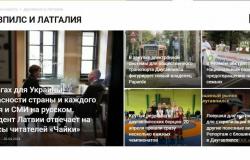In the two months of 2024, the surplus of the consolidated general budget of 180.9 million euros was 33.6 million euros higher than a year ago, according to the State Treasury data, but still lags behind the level of the surplus in the period before the pandemic – in the two months of 2019. This year, the surplus in the general budget was contributed by the surplus in the state special and municipal budgets, as well as in the budgets of derived public entities. On the other hand, as expenses in the state basic budget grow faster than revenues, a small deficit of 22.3 million euros can be observed in January-February of this year, which is 16.1 million euros more than in the corresponding two months a year ago.
Total budget revenues in January-February of this year were 2.9 billion euros, increasing by 269.8 million euros or 10.2% compared to the corresponding period of the previous year. The rapid increase in revenues is mainly explained by the received foreign financial aid revenues for the implemented European Union (EU) fund projects, which were received this year in a significantly higher amount (by 155.1 million euros more) than the year before. Similarly, the increase in revenues was ensured by non-tax revenues, which were collected in the total budget in the two months of 2024 in the amount of 154.6 million euros, which is 52.3 million euros or 51.1% more than a year earlier. The increase in revenues is basically explained by the state fees for special purposes paid by commercial banks in the amount of 24.2 million euros in January this year, which will appear in the general budget expenses in the following months, when compensations are paid to support mortgage borrowers.
On the other hand, tax revenues of the general budget, including the balance in the unified tax account, were collected in two months of this year by only 44.1 million euros, or 2.1% more compared to the corresponding period of 2023, amounting to 2.1 billion euros. It should be noted that in previous years, the increase in tax revenues was significantly faster in the first two months – in 2022, the growth rate was 19.4% and in 2023 – 13.7%, with value added tax (VAT) revenues growing the fastest. If in two months of 2022 there was an increase in VAT revenue by 27.8% and in the first two months of 2023 by 25.9%, then this year VAT revenue was collected by 81.2 million euros or 11.8% less than last year, making 606.7 million euros. High inflation and energy resource prices at the beginning of last year contributed to the increase in tax revenues in the electricity, gas supply and heat supply sectors, which began to decrease in the second half of the year and affected this year’s VAT revenues as well. A significant drop can be observed in VAT revenues in the wholesale sector, where lower contributions were made by wholesalers of oil products and fuel, as well as agricultural goods. On the other hand, in the last quarter of last year, high volume indices were observed in the construction sector, which contributed to the fall in VAT revenues in January of this year due to significantly higher refunds in the sector.
In contrast, the growth rate of labor tax revenue continues to increase. According to the data of the State Revenue Service, the wage fund increased by 11.1% in the two months of 2024. In the private sector, the increase in the wage fund was 7.5%, while in the public sector it was 19.8%. Thus, social contributions in the two months of this year amounted to 749.4 million euros, increasing by 73 million euros or 10.8%. Personal income tax (PIT) revenue was 511.5 million euros – 68.1 million euros or 15.3% higher than a year earlier. In January – February, income from VAT grew faster than income from social contributions, which is influenced by the progressivity of the VAT rate and the differentiated non-taxable minimum, which decreases at a higher wage level, thus the income base subject to VAT becomes larger.
Analyzing the total budget expenditures, which were 2.7 billion euros in the two months of 2024, there is an increase of 236.3 million euros or 9.5% compared to the corresponding period last year. The increase in expenses was facilitated by higher foreign financial aid expenses, which was determined by the start of payments to farmers of the new strategic plan of Latvia’s common agricultural policy 2023-2027 in January of this year. within the year. Also, payments in the amount of 16 million euros were made for the projects of the Rehabilitation Fund, and the expenses of Rail Baltica in the two months of 2024 in the basic state budget reached 18 million euros. On the other hand, with the end of the previous planning period and the gradual initiation of projects in the new planning period, the expenses of the Cohesion Policy funds in the two months of this year were EUR 74.3 million less than last year and amounted to EUR 40.7 million.
Likewise, the increase in expenses in the general budget in the two months of 2024 was determined by significantly increased general budget expenses for compensation, which were 116.8 million euros or 27.1% higher than a year earlier and amounted to 547.5 million euros. The increase was facilitated by the increase of the minimum wage in the country from EUR 620 to EUR 700 as of January 1 of this year, as well as the increase in wages for those working in the defense, internal affairs and justice sectors, including the payment of service allowances to officials of the Ministry of Internal Affairs and Justice with special service ranks for every five years of continuous service . In the budget of local governments, expenses for compensation also increased significantly, which is largely related to higher expenses for teachers’ wages.
In the two months of this year, capital expenditures also increased in the total budget – by 122.3 million euros – and were 252.2 million euros. The significant increase can be explained by higher expenses in the state basic budget, while the capital expenses in the municipal budget were lower than last year. The capital expenditures of the basic budget have increased for the performance of basic functions in the defense sector, where in February of this year, 145.3 million euros were spent on the purchase of equipment for the National Armed Forces.
The increase in wages and inflation, which affects the amounts of social benefits and pensions, also contributed to the increase of social payments in the general budget this year. They were 881.5 million euros in January-February 2024 and increased by 42 million euros or 5% compared to the previous year’s two months. With the number of beneficiaries remaining at last year’s level, but the average size increasing, the expenditure on old-age pensions in the state special budget increased by 16.9 million euros or 3.4%, and on disability pensions by 3.7 million euros or 8.1%. The expenses for sickness benefits in the two months of 2024 were 5.4 million euros or 8.4% higher than a year ago. This was also determined by the increase in the average amount of the sickness allowance (by 19.3% in the two months of this year), while the number of recipients decreased by 8% compared to the two months of 2023. Payments of a social nature are also growing in the municipal budget, as the payment for social care services, including care at home, increases.
Currently, the Ministry of Finance (FM) is working on updating the general government budget balance forecasts for 2024-2028, based on the forecasts of macroeconomic indicators renewed in February of this year. The balances will be included in Latvia’s Stability Program for 2024-2028, which is planned to be considered by the Cabinet of Ministers on April 30 this year. The FM has already informed that according to the current forecasts of macroeconomic indicators, Latvia’s gross domestic product (GDP) in comparable prices will increase by 1.4% in 2024, while in 2025 economic growth is expected to accelerate to 2.9%, in 2026 growth is predicted to be 2, 5%, 2.3% in 2027 and 2.3% in 2028.
MINISTRY OF FINANCE
Tags: months year surplus consolidated general budget Economy finance
-






